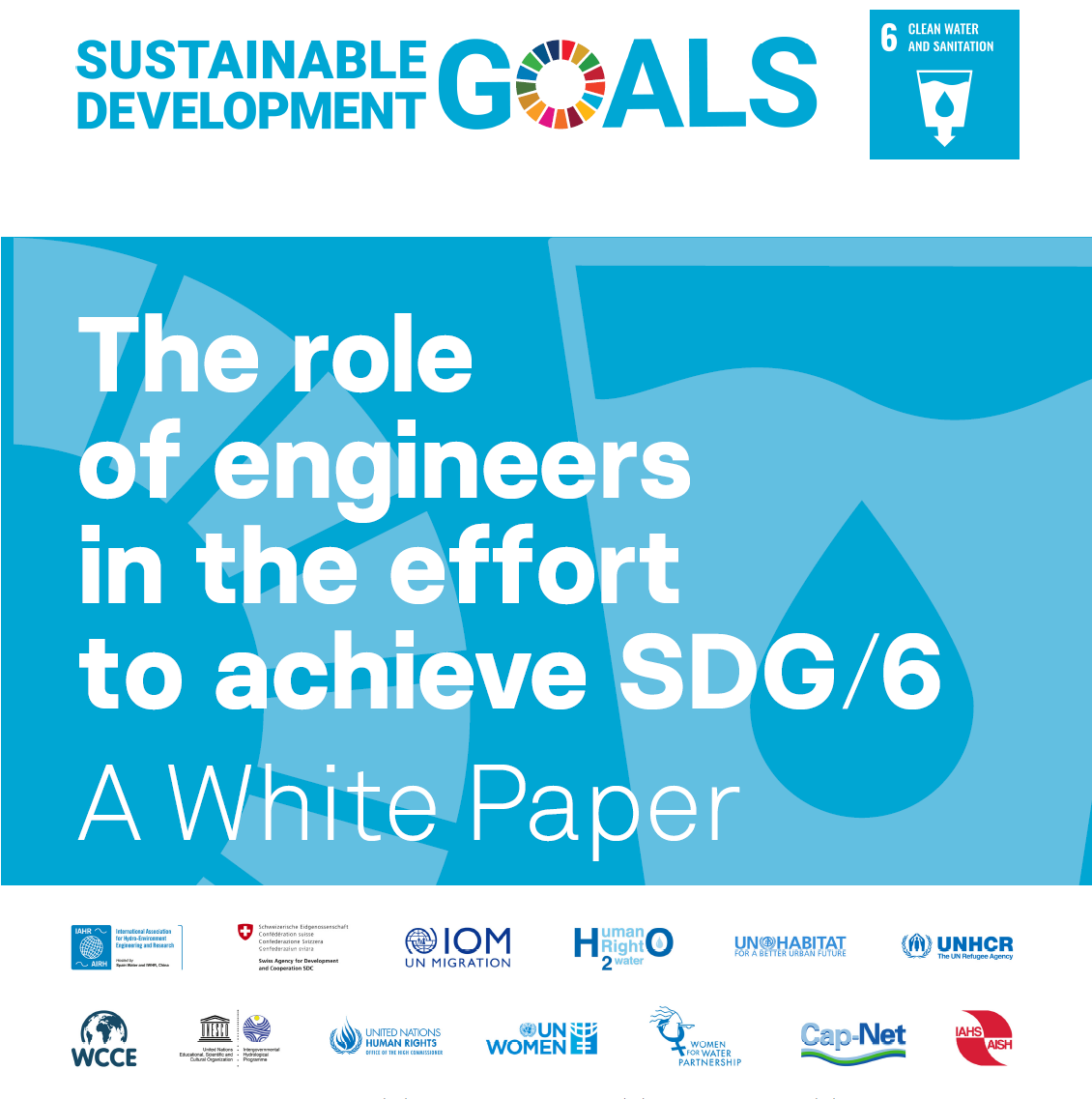

This White Paper grew out of the discussion in an open space session proposed by the International Association for Hydro-Environment Engineering and Research (IAHR) during the 32nd UN-Water meeting on 29 January 2020 in Rome.
Tomas Sancho, Member of the WFEO Executive Council and Chair of the Working Group on Water (WGoW) is one of the contributors to the development of the white paper, that you can see in this link.
The purpose of this white paper is to provide an overview of the contribution of engineering to the effort to achieve the water-related Sustainable Development Goals (SDGs) of Agenda 2030 and discuss what more they should be doing, including expanding their horizons beyond the confines of their traditional engineering education and the importance of embracing a human rights-based approach.
In addition, it explores how the modern paradigm of engineering, which inherently integrates nature-based approaches, contributes and enables nationalstakeholders to achieve the SDGs through gender-responsive, human rights-based approaches.
The Sustainable Development Goals (SDGs) of Agenda 2030 are based on findings from the natural and social sciences and other fields regarding the implementation of necessary changes in order to ensure the survival and prosperity of all people and all forms of life on the planet.
The SDGs are underpinned by several human rights principles including the principles of universality and indivisibility, participation and inclusion, equity and non-discrimination, and accountability and rule of law. These principles form the basis of a human rights-based approach.
For more information:
The role of engineers in the effort to achieve SDG 6 – A White Paper
UN Water website – The role of engineers in the effort to achieve SDG 6 on UN-Water
SDGs Partnerships Platform – The role of engineers in the effort to achieve SDG 6
FEB
2021
